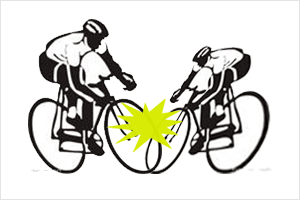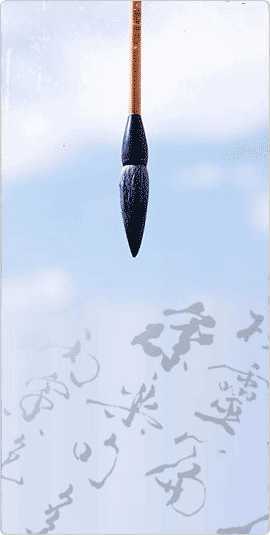Newsletter
To subscribe eChineseOnline Chinese language newsletter, please sign up now or send email to: subscribe-to-newsletter@echineseonline.com.

General Chinese (Beginner)
How Could That Be Good?

Watch Free Chinese video lessons – Learn the Usage of “好 (hăo)”

Jason has been in China for half a year. Last week, he was taking a walk along the street when he suddenly saw two cyclists riding towards each other at full speed. “不好了!(Bù hăo le!)” Jason and some passers-by shouted, but it was too late. The bikers collided. “这下好了!(Zhè xià hăo le!)” the passers-by said. Jason was very confused about the words “这下好了!(Zhè xià hăo le!)” How could this accident be “good” in any way?
We should begin first with the usage of “好 (hăo).”
“好 (hăo)” can be used as an adjective, adverb, verb, interjection and noun. It has many meanings such as good, fine, nice, completed, done, all right, well etc. Usually, the meaning of “好 (hăo)” is positive. It is added before a noun or a verb to express a preference for things. For example, if you like a Chinese song, you can say,
Zhè shŏu Zhōngwén gē zhēn hăotīng.
这 首 中文 歌 真 好听。
This Chinese song sounds really good.
If you want your friend to share her good news with you, you can say,
Gàosu wŏmen nǐ de hăo xiāoxi!
告诉 我们 你 的 好 消息!
Tell us your joyful news!
When a negative is added before “好 (hăo)” in a phrase, like “不好了(Bù hăo le!),” the phrase has the opposite meaning, which is, “It’s very bad.”
Also “好 (hăo)” can be used to express irony in some situations, just like “这下好了! (Zhè xià hăo le!) This is just great!” to express your dissatisfaction or annoyance for a bad situation. For example, you have gotten yourself into trouble because of your own mistakes, you can say,
Zhè xià hăo le! Wŏ gĕi zìjǐ zhăo máfan le.
这 下 好 了!我 给 自己 找 麻烦 了。
All right, I asked for this trouble.
Or if you cannot clean stained clothes, you can say,
Zhè xià hăo le, zhè xiē yīfu xǐ bù gānjìng le.
这 下 好 了,这 些 衣服 洗 不 干净 了。
Just great! These clothes can’t be cleaned.
Thus, “这下好了! (Zhè xià hăo le!)” is a sarcastic statement, which means the situation is bad and maybe even getting worse. If you want to learn more about the usage of “好 (hăo),” just watch our Chinese video lessons!

Jason has been in China for half a year. Last week, he was taking a walk along the street when he suddenly saw two cyclists riding towards each other at full speed. “不好了!(Bù hăo le!)” Jason and some passers-by shouted, but it was too late. The bikers collided. “这下好了!(Zhè xià hăo le!)” the passers-by said. Jason was very confused about the words “这下好了!(Zhè xià hăo le!)” How could this accident be “good” in any way?
We should begin first with the usage of “好 (hăo).”
“好 (hăo)” can be used as an adjective, adverb, verb, interjection and noun. It has many meanings such as good, fine, nice, completed, done, all right, well etc. Usually, the meaning of “好 (hăo)” is positive. It is added before a noun or a verb to express a preference for things. For example, if you like a Chinese song, you can say,
Zhè shŏu Zhōngwén gē zhēn hăotīng.
这 首 中文 歌 真 好听。
This Chinese song sounds really good.
If you want your friend to share her good news with you, you can say,
Gàosu wŏmen nǐ de hăo xiāoxi!
告诉 我们 你 的 好 消息!
Tell us your joyful news!
When a negative is added before “好 (hăo)” in a phrase, like “不好了(Bù hăo le!),” the phrase has the opposite meaning, which is, “It’s very bad.”
Also “好 (hăo)” can be used to express irony in some situations, just like “这下好了! (Zhè xià hăo le!) This is just great!” to express your dissatisfaction or annoyance for a bad situation. For example, you have gotten yourself into trouble because of your own mistakes, you can say,
Zhè xià hăo le! Wŏ gĕi zìjǐ zhăo máfan le.
这 下 好 了!我 给 自己 找 麻烦 了。
All right, I asked for this trouble.
Or if you cannot clean stained clothes, you can say,
Zhè xià hăo le, zhè xiē yīfu xǐ bù gānjìng le.
这 下 好 了,这 些 衣服 洗 不 干净 了。
Just great! These clothes can’t be cleaned.
Thus, “这下好了! (Zhè xià hăo le!)” is a sarcastic statement, which means the situation is bad and maybe even getting worse. If you want to learn more about the usage of “好 (hăo),” just watch our Chinese video lessons!

Have questions? Take FREE Mandarin Chinese video courses at eChineseOnline now!


